
Technology and Economics of Smart Grids and Sustainable Energy
Scope & Guideline
Exploring Innovations in Smart Grids and Sustainability.
Introduction
Aims and Scopes
- Renewable Energy Integration:
Research on the integration of renewable energy sources, such as solar, wind, and hybrid systems, into existing power grids, emphasizing innovative technologies and optimization strategies. - Smart Grid Technologies:
Exploration of advanced technologies that enhance the efficiency, reliability, and sustainability of power grids, including control systems, communication networks, and automation. - Economic and Techno-Economic Assessments:
Analysis of the economic viability and performance of energy systems and technologies, focusing on cost-benefit analyses, financial modeling, and economic impacts of energy transitions. - Energy Management and Optimization:
Study of methodologies for optimizing energy generation, consumption, and distribution, including demand-side management and optimization algorithms. - Environmental Impact Studies:
Investigation of the environmental implications of energy systems, including carbon emissions, pollution, and sustainability assessments. - Cybersecurity in Energy Systems:
Research on the security challenges and solutions related to smart grids and cyber-physical systems, ensuring robust defense mechanisms against potential threats.
Trending and Emerging
- Hybrid Energy Systems:
There is an increasing focus on hybrid systems that combine multiple energy sources (e.g., solar, wind, and battery storage) to enhance reliability and efficiency in energy generation. - Artificial Intelligence and Machine Learning Applications:
The utilization of AI and machine learning techniques for optimizing energy systems, forecasting energy production, and enhancing decision-making processes is rapidly gaining traction. - Decentralized Energy Systems and Microgrids:
Research on decentralized energy systems, including microgrids and community energy solutions, is on the rise as they promote energy independence and resilience. - Energy Storage Technologies:
The study of advanced energy storage solutions, particularly in relation to renewable energy integration and grid stability, is increasingly relevant in current research. - Sustainability and Circular Economy in Energy Systems:
Emerging interest in sustainability practices and circular economy principles in the design and operation of energy systems, focusing on minimizing waste and optimizing resource use.
Declining or Waning
- Traditional Power Generation Studies:
Research focusing solely on conventional power generation methods, such as fossil fuels, has decreased, reflecting the shift towards renewable and sustainable energy sources. - Basic Energy Consumption Analyses:
Simplistic studies on energy consumption without integrating advanced methodologies or technological analysis are becoming less prominent, as the field moves towards more complex and integrated approaches. - Static Economic Models:
The use of static economic models that do not account for dynamic changes in energy markets and technologies is declining, as researchers increasingly favor models that incorporate uncertainties and real-time data. - Generalized Grid Studies:
Broad, non-specific studies on grid operations are less prevalent, with a move towards more targeted research addressing specific challenges and technologies in smart grid development.
Similar Journals
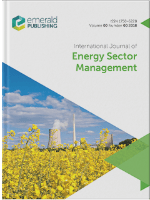
International Journal of Energy Sector Management
Shaping Tomorrow's Energy Strategies Today.Welcome to the International Journal of Energy Sector Management, a distinguished platform dedicated to advancing knowledge in the critical intersection of energy and management. Published by Emerald Group Publishing Ltd., this peer-reviewed journal, with an ISSN of 1750-6220 and E-ISSN 1750-6239, offers a unique forum for researchers, professionals, and students to share insights and experiences in energy sector management. With a commendable Q2 ranking in both the Energy (miscellaneous) and Strategy and Management categories, as well as a strong presence in Scopus rankings, this journal is pivotal for those looking to understand the complexities of energy systems and their management strategies from 2007 to 2024. By fostering open discourse on innovative practices, sustainability efforts, and policy implications, the International Journal of Energy Sector Management serves as an essential resource for anyone dedicated to shaping the future of energy management.
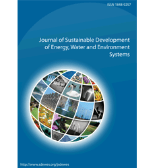
Journal of Sustainable Development of Energy Water and Environment Systems-JSDEWES
Advancing Sustainable Solutions for a Greener FutureJournal of Sustainable Development of Energy Water and Environment Systems (JSDEWES), published by the International Centre for Sustainable Development of Energy, Water, and Environment Systems, is a premier Open Access journal that has been shaping the discourse surrounding sustainable energy, water management, and environmental systems since its inception in 2013. Based in Croatia, this esteemed journal, bearing the ISSN 1848-9257, emphasizes an interdisciplinary approach, making significant strides within its converged years from 2013 to 2024. With impressive rankings in 2023—Q3 in Energy Engineering and Power Technology, Q2 in Environmental Science (miscellaneous), and noteworthy positions in Renewable Energy, Sustainability and the Environment, and Water Science and Technology—JSDEWES showcases its commitment to advancing knowledge and innovation in crucial areas affecting our planet's sustainability. Designed for an audience of researchers, professionals, and students alike, this journal is pivotal in fostering research that enhances our understanding and implementation of sustainable practices, while its esteemed Scopus rankings further underline its impact and contribution to the field.
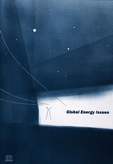
INTERNATIONAL JOURNAL OF GLOBAL ENERGY ISSUES
Bridging Knowledge Gaps for a Sustainable Energy FutureThe INTERNATIONAL JOURNAL OF GLOBAL ENERGY ISSUES, published by INDERSCIENCE ENTERPRISES LTD, stands as a vital platform for disseminating innovative research in the fields of energy engineering, nuclear energy, and renewable sustainability. With ISSN 0954-7118 and E-ISSN 1741-5128, this journal has been catering to the energy sector since 1989, advancing scholarly dialogue through critical analyses and discussions of emerging energy technologies and policies. Though currently categorized in the fourth quartile across various energy-related disciplines, the journal aims to bridge knowledge gaps and offer insights that challenge the status quo. Operating from its headquarters in the United Kingdom and accessible to a global audience, the journal encourages submissions that drive interdisciplinary research and provide solutions for pressing global energy challenges. Researchers, professionals, and students alike are invited to contribute and engage with this prestigious journal to influence the future of energy practices.

Smart Energy
Transforming Energy Practices with Cutting-Edge InsightsSmart Energy, an esteemed publication by ELSEVIER, stands at the forefront of energy research, exploring innovative solutions and sustainability practices in the energy sector. With an impressive Open Access model since its inception in 2021, this journal has rapidly established itself as a vital resource for researchers and professionals alike, providing unrestricted access to high-quality peer-reviewed articles. Positioned in the Q1 category across multiple fields, including Energy Engineering and Power Technology, Renewable Energy, and Management, Monitoring, Policy and Law, Smart Energy demonstrates a strong commitment to advancing knowledge in the energy domain. Registered under the ISSN 2666-9552, it garners significant attention, ranking within the top ranges of Scopus metrics across various disciplines. The journal continuously aims to bridge the gap between academic research and practical application, making it an essential outlet for scholars and practitioners dedicated to fostering sustainable energy solutions worldwide. Located in the United Kingdom, Smart Energy is shaping the future of energy management from its publishing base in Amsterdam, the Netherlands.
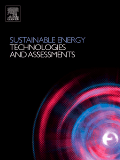
Sustainable Energy Technologies and Assessments
Illuminating Paths to Renewable Energy ExcellenceSustainable Energy Technologies and Assessments is a prestigious journal published by ELSEVIER, based in the United Kingdom, focusing on the critical field of energy engineering and its intersection with sustainability. Since its inception in 2013, the journal has established itself as a leading platform for disseminating innovative research and assessments of sustainable energy technologies, earning a notable Q1 ranking in both Energy Engineering and Power Technology, as well as Renewable Energy, Sustainability, and the Environment. With an impressive Scopus ranking—#22 out of 272 in Energy Engineering and #40 out of 270 in Renewable Energy—this journal is essential for researchers and professionals seeking to advance their knowledge on cutting-edge developments and assessments in sustainable energy. Although the journal operates on a subscription basis, it remains committed to promoting high-quality research that aligns with global sustainability objectives. Researchers and students alike will find invaluable insights and data that shape the future of renewable energy technologies within these pages.

Frontiers in Energy Research
Empowering sustainable energy solutions through research.Frontiers in Energy Research is a prestigious open-access journal published by FRONTIERS MEDIA SA, dedicated to advancing knowledge in the diverse fields of energy research. Launched in 2013, the journal has established itself as a pivotal platform for disseminating high-quality research, particularly in areas such as Economics and Econometrics, Energy Engineering and Power Technology, and Renewable Energy, Sustainability and the Environment. With a notable impact factor and impressive quartile rankings, including Q2 in multiple categories and a reputation for rigorous peer review, Frontiers in Energy Research offers researchers, professionals, and students alike a vital resource for exploring the latest innovations and insights in energy studies. Operating from its base in Lausanne, Switzerland, this journal is committed to enhancing open accessibility to relevant research, significantly contributing to the global dialogue on energy solutions and sustainability.
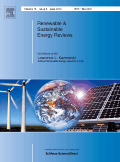
RENEWABLE & SUSTAINABLE ENERGY REVIEWS
Pioneering Research for a Sustainable WorldRENEWABLE & SUSTAINABLE ENERGY REVIEWS is a premier interdisciplinary journal published by Pergamon-Elsevier Science Ltd that focuses on cutting-edge research and reviews in the field of renewable energy and sustainability. With an esteemed impact factor, the journal stands out in Q1 category rankings for Renewable Energy, Sustainability, and the Environment, holding a remarkable rank of #7 out of 270 in Scopus with a 97th percentile rating. Since its inception in 1997, it has provided a vital platform for scholars and practitioners to disseminate knowledge, share innovative solutions, and discuss the technological advancements needed to foster a sustainable energy future. Although not currently offering open access, the journal ensures valuable insights are available to its audience, contributing enormously to the global discourse on renewable energy policy and practice. The journal is vital for anyone interested in the dynamics of sustainability in energy systems, as it bridges the gap between academia and practical application.
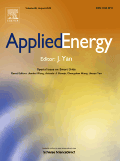
APPLIED ENERGY
Transforming energy challenges into innovative solutions.APPLIED ENERGY, published by Elsevier Science Ltd, is a leading journal dedicated to the advancing field of energy research, focusing on practical engineering solutions to contemporary challenges in energy management, sustainability, and environmental impact. With a rigorous peer-review process and a strong commitment to promoting innovative research, APPLIED ENERGY proudly holds multiple Q1 rankings across various categories, including Building and Construction, Civil and Structural Engineering, and Renewable Energy, reflecting its prestigious position within the academic community. Researchers and professionals can benefit from its comprehensive scope, covering topics that span from policy and technology to market dynamics. Although it is not an open-access journal, it provides access options that facilitate research dissemination. With its historical significance since 1975 and an ambitious outlook up to 2025, APPLIED ENERGY continues to be an essential resource for anyone looking to stay at the forefront of energy research and application.

Wireless Power Transfer
Transforming Energy Transfer Through Cutting-Edge ResearchWireless Power Transfer is a pioneering journal dedicated to the exploration and advancement of innovative technologies in the realm of wireless power transfer systems. Published by HINDAWI LTD, this esteemed journal has been a significant contributor to the fields of Computer Networks and Communications, Electrical and Electronic Engineering, and Energy Engineering and Power Technology since its inception in 2014. With an emphasis on promoting high-quality research and knowledge exchange, the journal aims to support the rapid development of wireless power solutions that meet modern energy demands. Although it currently holds a Q4 ranking in its respective categories, it is positioned to become a crucial platform for researchers and practitioners eager to address the challenges of efficiency and effectiveness in wireless energy transfer. Readers will benefit from open access content, enriching their understanding through the latest findings and methodologies. The journal is physically located in the United Kingdom, at ADAM HOUSE, 3RD FLR, 1 FITZROY SQ, LONDON W1T 5HF, ENGLAND, and welcomes submissions that provide insights into the future of this dynamic and evolving sector.
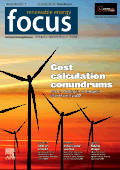
Renewable Energy Focus
Championing Research for a Cleaner, Greener PlanetRenewable Energy Focus is a premier journal published by Elsevier, dedicated to advancing the field of renewable energy and sustainability. With an ISSN of 1755-0084 and an E-ISSN of 1878-0229, this journal serves as a vital platform for researchers, professionals, and students interested in innovative solutions to energy challenges. Established in 2007, the journal has evolved to become a recognized authority in the subject area, currently ranked in the Q2 quartile of its category for 2023, emphasizing its significance in promoting impactful research. The journal encompasses a wide range of topics, including solar, wind, bioenergy, and sustainable practices that contribute to environmental conservation and energy efficiency. As part of Elsevier's commitment to disseminating high-quality research, Renewable Energy Focus is indexed in Scopus, currently holding a rank of #92/270 in the energy sector, positioning it in the 66th percentile of its field. This journal offers an essential resource for those dedicated to fostering sustainable energy solutions.